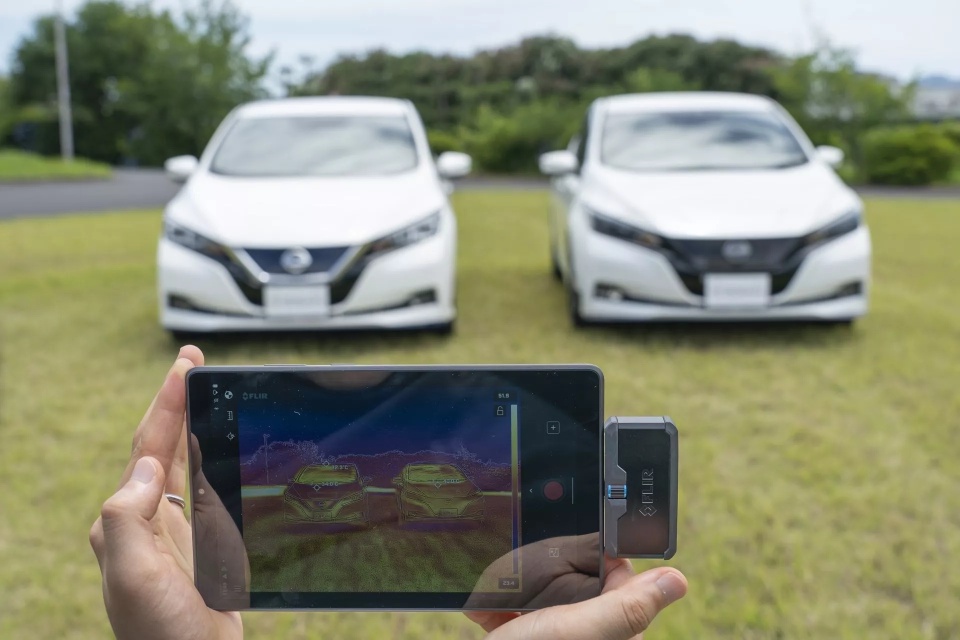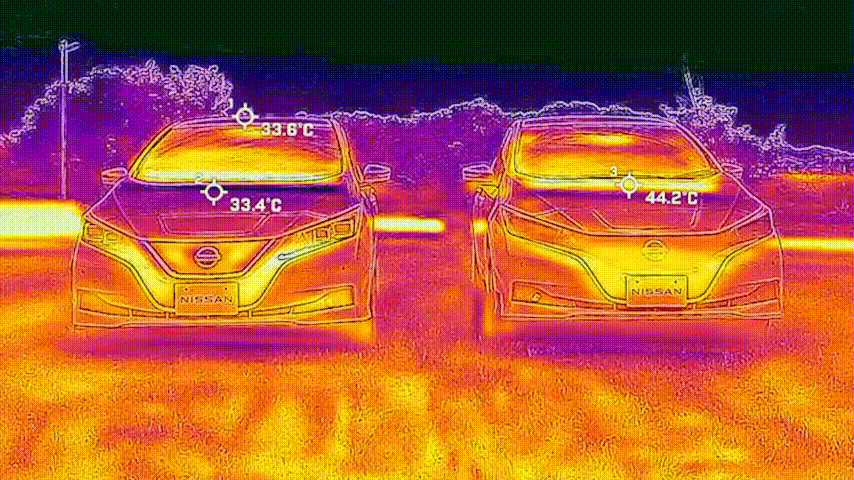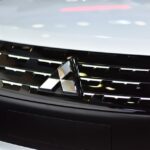
|
According to Carscoops, Nissan has partnered with Radi-Cool, a Chinese company specializing in developing heat reduction products for vehicles, to find ways to improve the heat insulation of automotive exterior paint. The quest for a “cooler” exterior paint began in 2021, and since then, they have developed and evaluated over 100 different paint samples.
Last November, a 12-month feasibility study was initiated at the Tokyo International Passenger Terminal at Haneda Airport (Tokyo, Japan). As part of this study, Nissan NV100 vehicles from the ground service team of All Nippon Airways were coated with different paints to test heat absorption.
Per Carscoops, the airport is considered an ideal testing environment due to its open space and wide runways, which are perfect for validating the performance of the new paint.
|
|
Nissan shared that the new paint has proven to be effective to some extent. In a side-by-side comparison under direct sunlight, a Nissan NV100 finished with the new paint felt noticeably cooler to the touch.
The Japanese automaker reported a surface temperature reduction of up to 12 degrees Celsius compared to a vehicle coated with conventional paint. Additionally, the interior temperature of the vehicle with the new paint was approximately 5 degrees Celsius lower than that of a conventionally painted vehicle.
Nissan incorporated a super material into the paint composition to enhance its cooling capabilities. Specifically, a particulate component in the new paint can reflect near-infrared rays, which typically cause molecular vibrations in standard car paint, leading to heat buildup.
Meanwhile, a second particulate is said to generate electromagnetic waves that bounce solar radiation back into the atmosphere, preventing heat absorption by the vehicle.

|
According to Carscoops, one of the hurdles to commercializing this paint is its thickness. The cooling paint developed by Nissan is still six times thicker than standard automotive paint.
However, the research team is confident about future applications and expects to introduce additional color options beyond the white paint used in the current testing phase.
It is worth noting that Nissan is not alone in pursuing this technology. A research team from Purdue University developed a white paint capable of reflecting up to 97.9% of solar radiation, and they published their findings in 2022. Toyota has also experimented with exterior paint cooling technology, and Hyundai introduced its Nano-cooling paint membrane.
With the focus on keeping vehicles cool, car owners are often advised to steer clear of dark exterior paint options. The conventional wisdom suggests that coating a car with black or dark-colored paint can cause the cabin temperature to rise quickly when exposed to sunlight.
Recommended Reads for Your Journey
Our Automotive section offers a diverse range of captivating book titles to accompany you on your travels. Whether you’re on a road trip or commuting, these books will keep you entertained and engaged during those moments of relaxation.
“Nissan Tests Heat-Reducing Cabin Paint Technology”
Nissan has unveiled an innovative automotive paint with a remarkable ability to lower temperatures. This cutting-edge paint technology can reduce the roof temperature by a significant 12 degrees Celsius and the interior temperature by 5 degrees Celsius. With this breakthrough, Nissan is revolutionizing the automotive industry, offering a solution to combat the heat and provide a more comfortable driving experience.














































